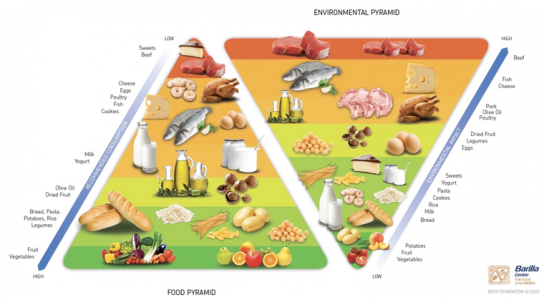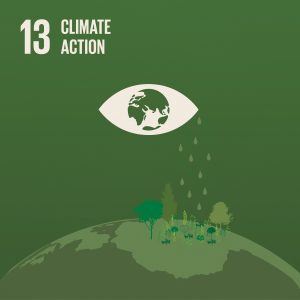The Intergovernmental Panel on Climate Change (IPCC) set up by the World Meteorological Organization and the United Nations Environment concluded in its Fifth Assessment Report: “climate change is real and human activities are the main cause.” Dangerous greenhouse gas emissions, average global temperatures increasing, oceans warming, and sea-level rise; represent just a few consequences of climate change. Yet for many Americans, the topic of climate change remains a generalization. Many simply fail to make the connection between their own daily habits and the increasing global impact on climate change. The problem with lazily looking at the problem in the abstract is that it provides a convenient excuse to not act responsibly. All of us must understand and appreciate the need to adopt new food habits and choices in order to prevent the harsh effects of climate change for ourselves and for future generations.
In April 2019, The New York Times published the article “Your Questions About Food and Climate Change, Answered” By Julia Moskin, Brad Plumer, Rebecca Lieberman and Eden Weingart. This informative article breaks it all down for us. Yes, our food choices affect climate change. The “food system is one-quarter of the planet-warming greenhouse gases.” The food cycle includes clearing the forest for livestock, animal digestion releases methane gas, the usage of fossil fuels to run the machinery necessary to operate the farm, and the subsequent transportation of the meat, all of which contribute to climate change. The article makes four meaningful conclusions: 1) Agriculture is a contributor to climate change, and some foods contribute negatively more than others. Beef is the most significant contributor, and plants, the least. 2) Your food choices (i.e., reducing the amount of animal protein) has a greater impact than the effect of choosing local vs. organic. 3) You don’t have to adopt a vegan diet; changes occur as a result of even minor adjustments to one’s diet. For example, reducing red meat consumption to once a week, or substituting poultry for red meat a few times a week can have a substantial effect 4) Purchase and use only the food you need, will reduce waste tremendously.
Similar findings can be found in other publications. In Barilla Center for Food and Nutrition Eating Planet, states:
“sustainability of the agri-food chain of production depends not only on the commitment of the farmers, the producers, and the distributors but also -and perhaps even more so – on the individual choices and families, who have such a powerful effect on the entire market and the environment in which we live with daily choices and decisions they make.”
 Barilla Center for Food and Nutrition (BCFN), a research center that studies and develops an understanding of the many complex global issues involving our food system. BCFN developed a double food and environmental pyramid model to reflect the relationship between the nutritional value of foods and the environmental impact of those decisions. The double pyramid suggests that following a Mediterranean diet, as recommended by many health professionals, will decrease the environmental impact. This diet entails eating without excess, reducing meat and dairy consumption, increasing fruits and vegetables, and eating whole grains.
Barilla Center for Food and Nutrition (BCFN), a research center that studies and develops an understanding of the many complex global issues involving our food system. BCFN developed a double food and environmental pyramid model to reflect the relationship between the nutritional value of foods and the environmental impact of those decisions. The double pyramid suggests that following a Mediterranean diet, as recommended by many health professionals, will decrease the environmental impact. This diet entails eating without excess, reducing meat and dairy consumption, increasing fruits and vegetables, and eating whole grains.
These are just three examples of research confirming that YES, there is a connection between our food system and climate change, and our daily food choices have an impact on our environment. Reducing your environmental impact by slowly making changes will have a more permanent effect. Start with mini modifications in your diet (lifestyle changes). For example, finish your sauces by blending them instead of adding cream or butter, skip the cheese on your burger, make your burger with beans or pulses instead of meat, have a sustainable seafood night once a week. Bottom line: making a few small changes to your diet will help our environment and your health.
Post contributed by Lecturer Ana Plana, ME, Culinary Science, Department of Nutrition, Dietetics & Hospitality Management, College of Human Sciences.
References:
Food For Sustainable Growth, Barilla Center for Food & Nutrition, Eating Planet Food and Sustainability: Building our Future, Edizioni Ambiente, 2016 p. 92 -115.
Learn about the SDGs & AU and our contributions related to this post.





